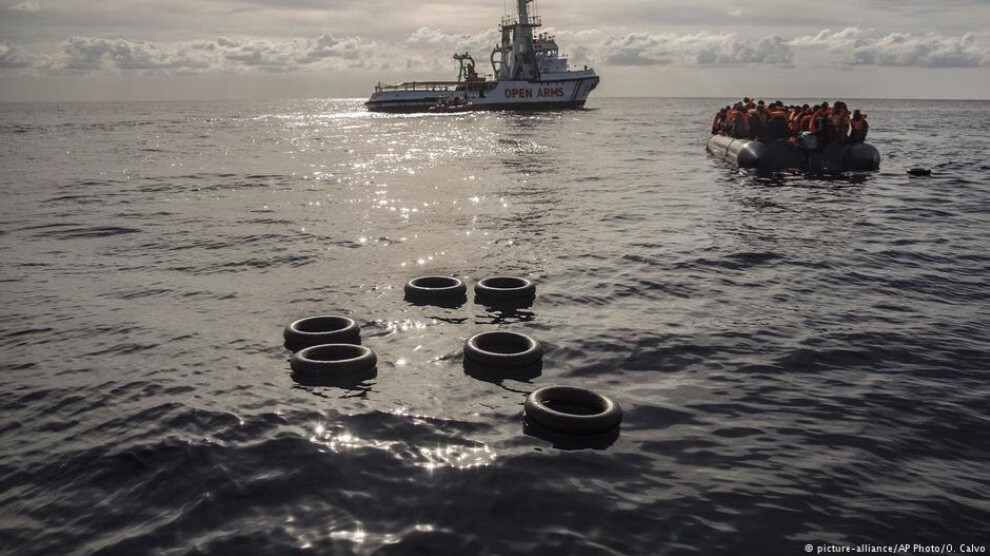Children's bodies off Libyan coast - Not a tragedy, but a crime
The bodies of several drowned infants have washed up on Libyan shores. The children are migrants who died while trying to cross to Europe.
The bodies of several drowned infants have washed up on Libyan shores. The children are migrants who died while trying to cross to Europe.

The bodies of toddlers and babies that have washed up on Libyan shores in recent days show the brutality of the European border regime in unmistakable terms.
"I am still in shock at the horror of these images," Oscar Camps, founder of NGO Proactiva Open Arms, wrote on Twitter. "These young children and women had dreams and life ambitions."
Nancy Porsia, an Italian journalist and Libya expert, reports that the bodies were discovered Saturday on a beach in Zuwara. They were collected by the Libyan military and buried in the cemetery in nearby Abu Qamash. The images bring back memories of Alan Kurdi - the toddler from Kobanê who drowned off the Turkish coast. In 2015, the image of the dead three-year-old jolted many people awake to the desperate situation of the migrants at the EU's borders.
A spokesperson for the UN migration agency in Italy said it was not clear when the victims had set off from Libya and what had happened to their vessel. “These are dramatic images,” said Flavio Di Giacomo. “We’re trying to get to the bottom of this with our colleagues in Libya. There are many shipwrecks that are never recorded. We can’t exclude that it may be one of those.”
Last week, Tunisian authorities reported that dozens of people died in an accident off the Tunisian coast. On April 22, more than 130 people died when their rubber boat capsized in stormy seas off the coast of Libya.
According to the U.N. migration agency, about 630 people have died in the central Mediterranean this year trying to reach Europe.
Italian Prime Minister Mario Draghi said: “Images of bodies of babies and toddlers washed up on a beach in Libya are unacceptable.” In doing so, Draghi unwittingly exposed the cynicism of EU border policy. It is not the corpses of babies but the images that are obviously unacceptable. Draghi himself knows that the deaths of people of all ages are the consequence of the cessation of government rescue operations in the Mediterranean, the obstruction of civilian sea rescue, and ultimately the denial of safe routes to Europe.
In the media, events like this are repeatedly treated as "drama" or "tragedy". As if it were the hand of fate or the gods, who, as in ancient tragedy, plunge the protagonists into misfortune. To imply such a thing, however, is simply trivializing. For unlike tragedy, it is not fate or divine will that plays judge here, but rather a brutal and purposeful policy of foreclosure that accepts these deaths but is unwilling to "endure" their images. It is not a tragedy, but a crime.
Last week, Tunisian authorities said dozens of people died in a shipwreck off the coast of Tunisia, while in April more than 130 people died when their rubber boat capsized in stormy seas off the coast of Libya.
According to the UN’s migration agency, about 630 people have died in the central Mediterranean this year while attempting to reach Europe.